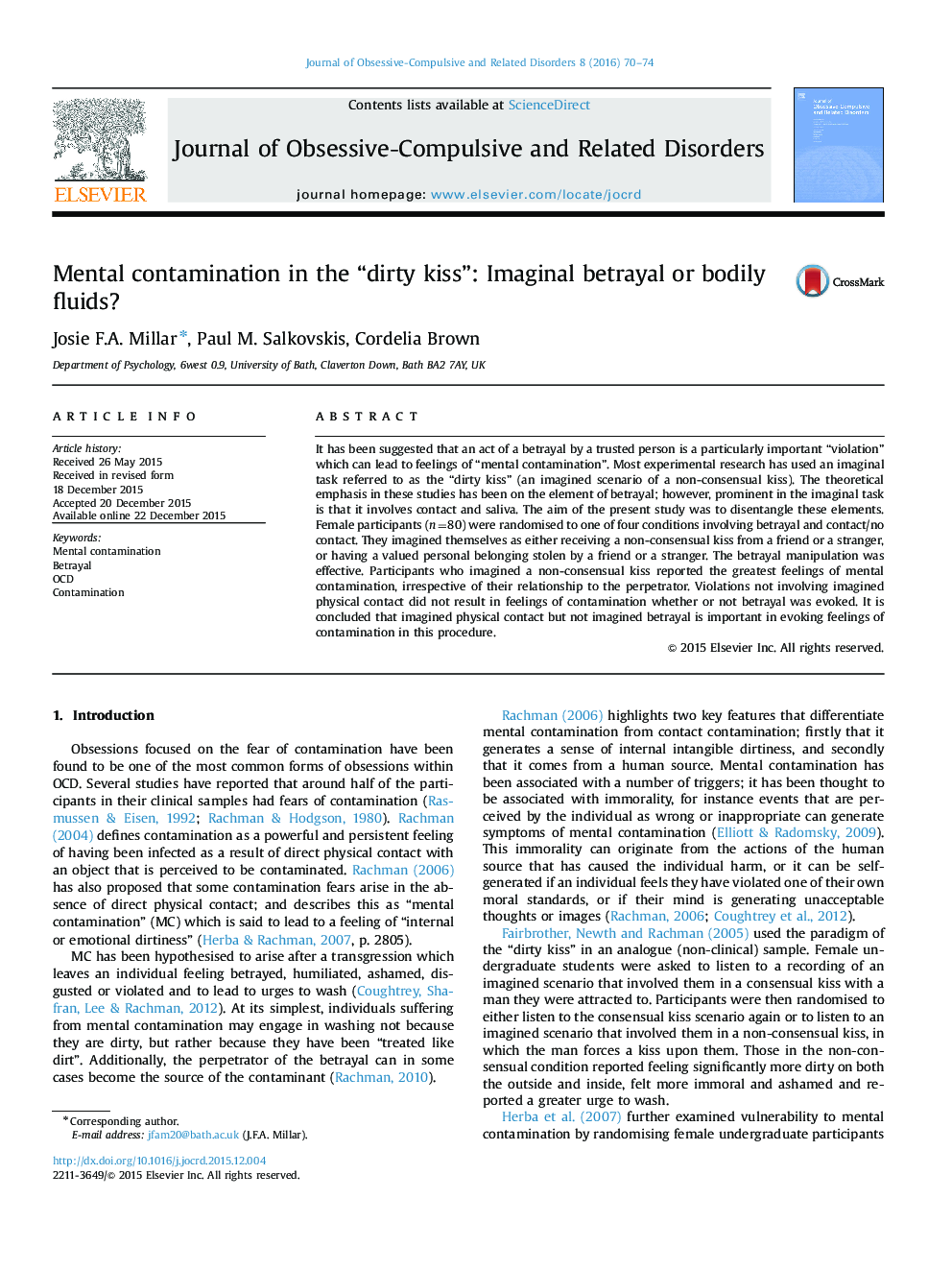| Article ID | Journal | Published Year | Pages | File Type |
|---|---|---|---|---|
| 7269175 | Journal of Obsessive-Compulsive and Related Disorders | 2016 | 5 Pages |
Abstract
It has been suggested that an act of a betrayal by a trusted person is a particularly important “violation” which can lead to feelings of “mental contamination”. Most experimental research has used an imaginal task referred to as the “dirty kiss” (an imagined scenario of a non-consensual kiss). The theoretical emphasis in these studies has been on the element of betrayal; however, prominent in the imaginal task is that it involves contact and saliva. The aim of the present study was to disentangle these elements. Female participants (n=80) were randomised to one of four conditions involving betrayal and contact/no contact. They imagined themselves as either receiving a non-consensual kiss from a friend or a stranger, or having a valued personal belonging stolen by a friend or a stranger. The betrayal manipulation was effective. Participants who imagined a non-consensual kiss reported the greatest feelings of mental contamination, irrespective of their relationship to the perpetrator. Violations not involving imagined physical contact did not result in feelings of contamination whether or not betrayal was evoked. It is concluded that imagined physical contact but not imagined betrayal is important in evoking feelings of contamination in this procedure.
Related Topics
Health Sciences
Medicine and Dentistry
Psychiatry and Mental Health
Authors
Josie F.A. Millar, Paul M. Salkovskis, Cordelia Brown,
